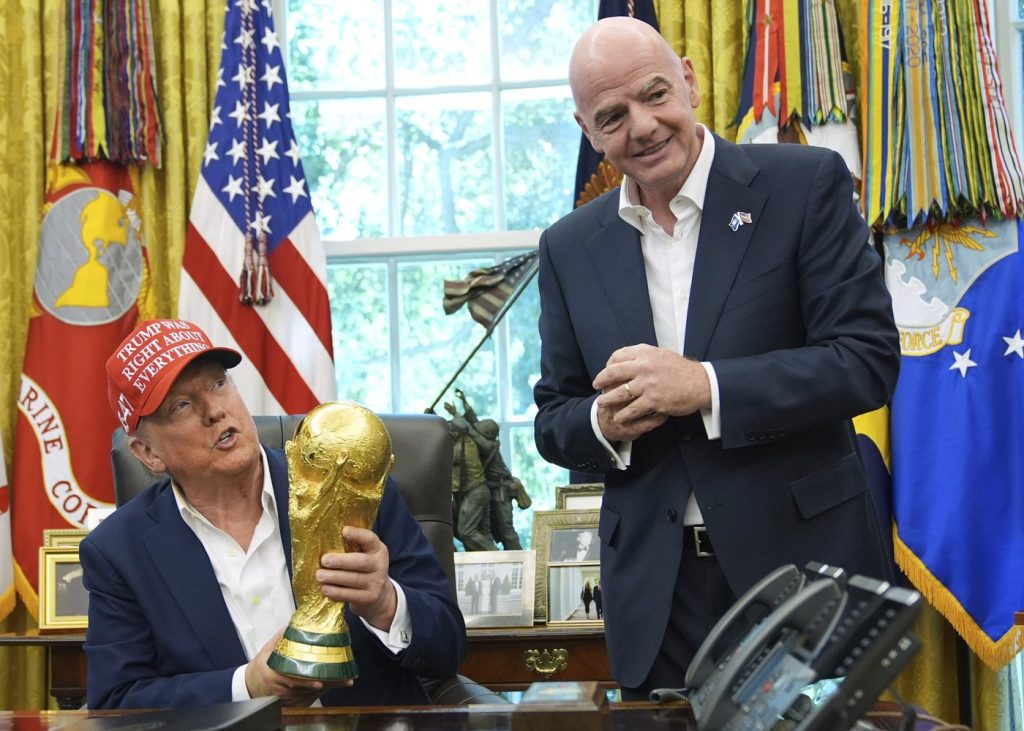In July, during the Club World Cup final at MetLife Stadium, a significant plan began to take shape. President Donald Trump and FIFA President Gianni Infantino met to discuss the upcoming draw for the 2026 World Cup, which is set to take place on December 5. While Las Vegas was initially favored as the host city for its vibrant atmosphere, discussions had been ongoing since March about moving the draw to Washington, D.C., particularly the Kennedy Center, a location associated with Trump.
The meeting in New Jersey was marked by discussions of urgency, with Andrew Giuliani, the executive director of the White House FIFA task force, stating that the need to finalize arrangements was critical. This collaboration underscores the growing bond between Trump and Infantino, with Trump praising Infantino as “probably the most respected man in sports.” This relationship is likely to gain more attention as the World Cup approaches, as it will be shared by the U.S., Mexico, and Canada.
Tickets for the tournament are currently available to fans, but significant questions remain regarding the welcoming of visitors from certain nations amid ongoing immigration concerns. Despite assurances from the White House about openness, Trump has indicated he might relocate games from cities he deems unsafe, further complicating preparations.
While Trump's affinity for sports is well-known, he has previously shown more interest in golf and football rather than soccer. However, his youngest son, Barron, has fueled Trump’s interest in the sport. Trump's enthusiasm for the World Cup grew when the U.S. won host rights in 2018. Giuliani remarked that Trump was almost nostalgic about not being in the White House for the event, anticipating that he would be serving a second term by that time.
After the U.S. was awarded the tournament, Trump hosted Infantino at the White House, and the FIFA President left a lasting impression by gifting Trump penalty cards, humorously stating they could be used on the press. The relationship between the two flourished further in 2020, as they both sought to carve paths for their futures during a dinner at the global economic summit in Davos, where Infantino referred to Trump as “my great friend.”
With Trump out of the White House and Biden's presidency dominating, Infantino’s connections to Washington became more tenuous. While existence of an American World Cup task force was maintained, the Biden administration opted for a more subdued role, negotiating directly with the host cities instead of the U.S. Soccer Federation. Infantino's meetings during this time were limited to brief encounters, reflecting a shift away from the robust relationship he held with Trump.
Trump’s return to the political stage marked a new phase in the relationship. After winning a second term in a non-consecutive election, Infantino’s enthusiasm for Trump became evident, as he promptly congratulated him and attended key events during the transition period. Trump has consistently referred to Infantino as a “winner,” and the FIFA President has increasingly appeared alongside Trump, suggesting a potential role for him in the World Cup draw execution.
As the planning for the tournament unfolds, the stakes are high for both FIFA and Trump, particularly as this World Cup is seen as a precursor to a series of global events in the U.S., including the 2028 Olympics. The collaboration is positioned as crucial for presenting the U.S. as a premier host for global sporting events.
The World Cup's planning highlights the complex interplay between sports and politics, and the implications of leadership and public relationships as the event date draws near. This dynamic will be closely watched as the monumental occasion approaches, with Trump and Infantino at the helm of these significant decisions.











